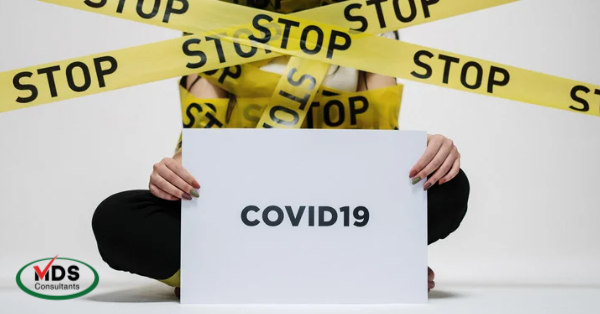Many providers have have cohorted residents in the same isolation room – applying recent CMS and CDC guidance during the COVID-19 emergency. This cohorting leaves many providers with the question:
Can we code isolation on the MDS for cohorted residents?
These facilities recognize that coding isolation will result in higher reimbursement in the PDPM, State case-mix, and Medicare Advantage payment models. However, residents with COVID-19 may or may not meet the requirements for coding defined by the RAI manual.
What The RAI Manual Says
The RAI manual has four strict criteria that a resident must meet to be coded at OO0100M:
- The resident must have an active infection with a highly transmissible pathogen. A physician diagnosis of COVID-19 with active symptoms would meet the standard of a highly infectious pathogen.
- Precautions are over and above standard precautions. Transmission-based precautions such as contact, droplet, or airborne must be in effect. COVID-19 does require droplet precautions to prevent the spread of the virus.
- The resident must be alone in the room (single room/private room isolation) due to active infection and cannot have a roommate. Do not code isolation when cohorted with another resident, even if both residents are being treated or isolated for COVID-19.
- The resident must remain in the room at all times. All services must be provided in the resident’s room including meals, activities, and all therapies. (exceptions are made for specific medical procedures refer to the RAI manual)
If a resident with COVID-19 meets all criteria, then the facility may code the resident as being on isolation for MDS and reimbursement purposes.
For example, Mr. Jones tested positive for COVID. He is moved to a room with another positive resident. He has an active infection, is placed on droplet precautions, and receives all services in his room. Mr. Jones does not meet all four criteria because he is cohorted with another resident.
In another example, Mrs. Smith has active Clostridioides Difficile (C.Diff). She develops signs and symptoms of COVID-19. She is moved to a private room. As suspected, the COVID test returns a positive result. She cannot be cohorted with other COVID positive residents due to active C.Diff and therefore requires strict isolation. Mrs. Smith does meet all criteria and can be coded as isolation on the MDS.
Our Take
CMS has waived the requirements in 42 CFR 483.10(e) solely for the purposes of grouping or cohorting residents with respiratory illness symptoms and/or residents with a confirmed diagnosis of COVID-19, and separating them from residents who are asymptomatic or tested negative for COVID-19.
This action waives a facility’s requirements to provide for a resident to share a room with his or her roommate of choice in certain circumstances, to provide notice and rationale for changing a resident’s room, and to provide for a resident’s refusal a transfer to another room in the facility.
This aligns with CDC guidance to preferably place residents in locations designed to care for COVID-19 residents, to prevent the transmission of COVID-19 to other residents. CMS and CDC did give permission to cohort residents with COVID-19. However, this did not change the RAI guidelines for coding isolation.
Providers that code and receive reimbursement for isolation should ensure the resident does indeed met all the criteria. Be sure that the medical record and care plan reflects strict isolation.
Other factors to include in the documentation are physician diagnosis of the active infection, symptoms of the virus, any lab results, droplet precautions/isolation, and document all services that were provided in the room.
Right now, there is a lot of changes happening in Skilled Nursing Facilities related to the pandemic, but one thing that should not change is coding accuracy and integrity.
